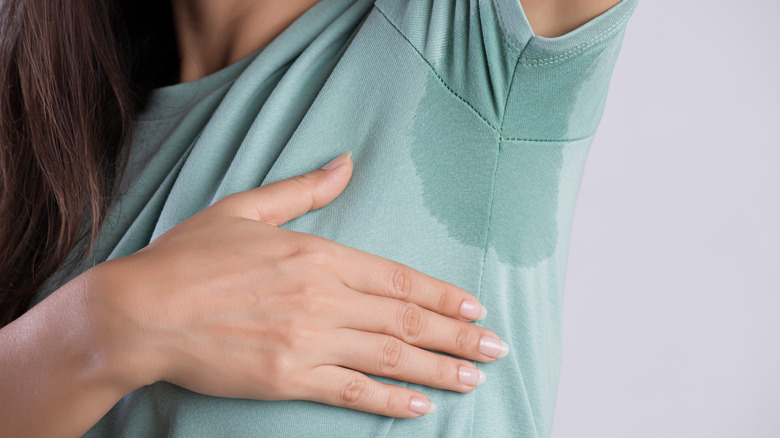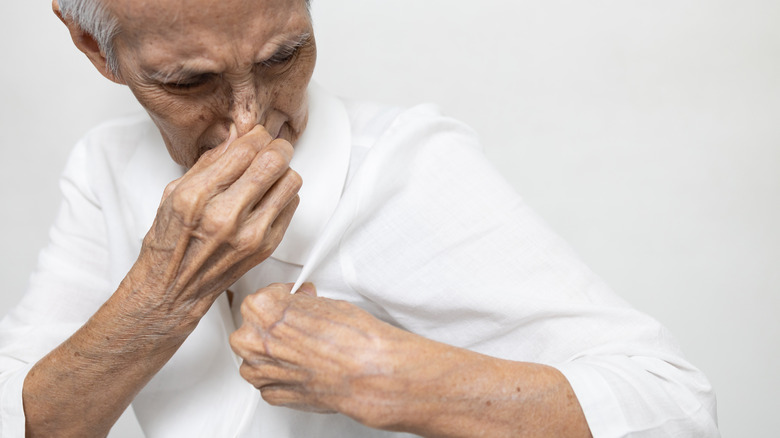The Real Reason One Of Your Armpits Smells Worse Than The Other
Body odor is an unfortunate fact of life. Some people don't notice theirs until they work up a sweat, while others are constantly at odds with their personal odor. According to Harvard Health Publishing, sweating — the most common source of body odor — is important for our health. Our bodies produce sweat as part of their natural cooling system. Without it, we'd overheat.
Surprisingly, it's not sweat alone that's to blame for that nose-crinkling smell, because sweat itself is odorless (via Harvard Health Publishing). It only begins to stink when it comes into contact with bacteria. Excessive sweating, sometimes caused by certain conditions or medications, can worsen any foul odor because there is more sweat available to interact with bacteria. But that is not a particularly common condition.
This sweat-to-bacteria ratio can change in other ways. And when it does, it actually can cause one underarm to give off a more pungent scent than the other one.
Bacterial imbalances have several causes
What is it, then, that can cause the balance between sweat and bacteria under your arm to change? And what might make that equilibrium change under one armpit and not necessarily the other, causing only one underarm to reek?
The most obvious reason is using antiperspirant or deodorant on one armpit, but failing to apply it on the other (via LiveStrong). Another cause could be shaving under one arm, but not the other. Because hair traps more sweat than skin, there's a greater chance for sweat on the hairier armpit to mix with odor-causing bacteria, Dr. Beth Goldstein, adjunct clinical professor of dermatology at the University of North Carolina at Chapel Hill, told LiveStrong.
But removing that underarm hair with a razor might not guarantee an odorless armpit. Chafing and shaving under the arms create the possibility that small cuts or abrasions. These can become infected, throwing off the bacterial balance between one underarm and the other (per LiveStrong). In these cases, the wounds may be in locations that a person cannot see and may not be severe enough to be felt, but can cause a change in the person's body odor all the same. A check by a medical professional can either confirm or rule out the possibility, while also finding out the best possible treatment option.


